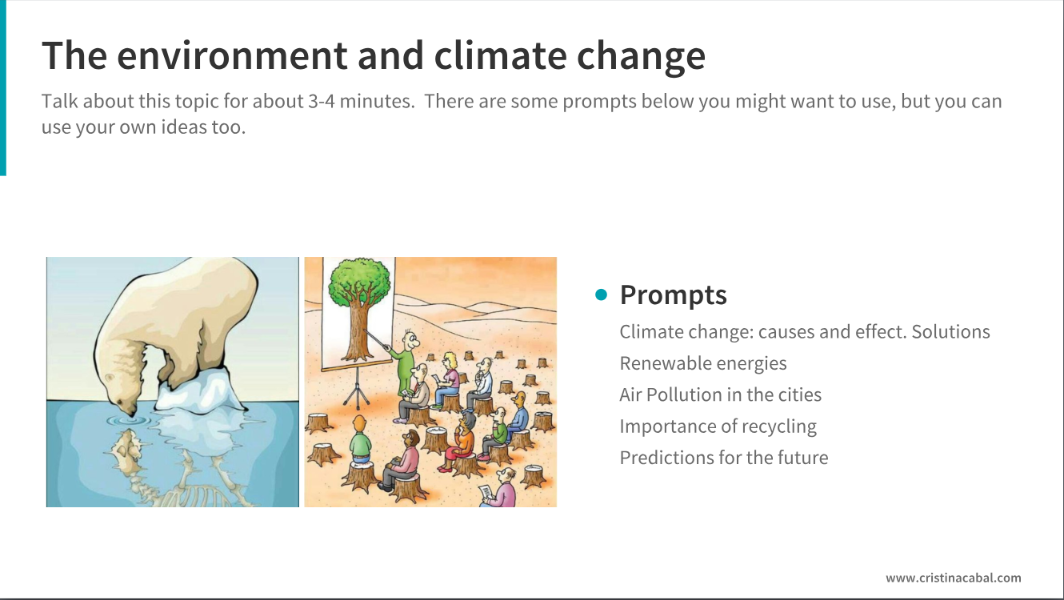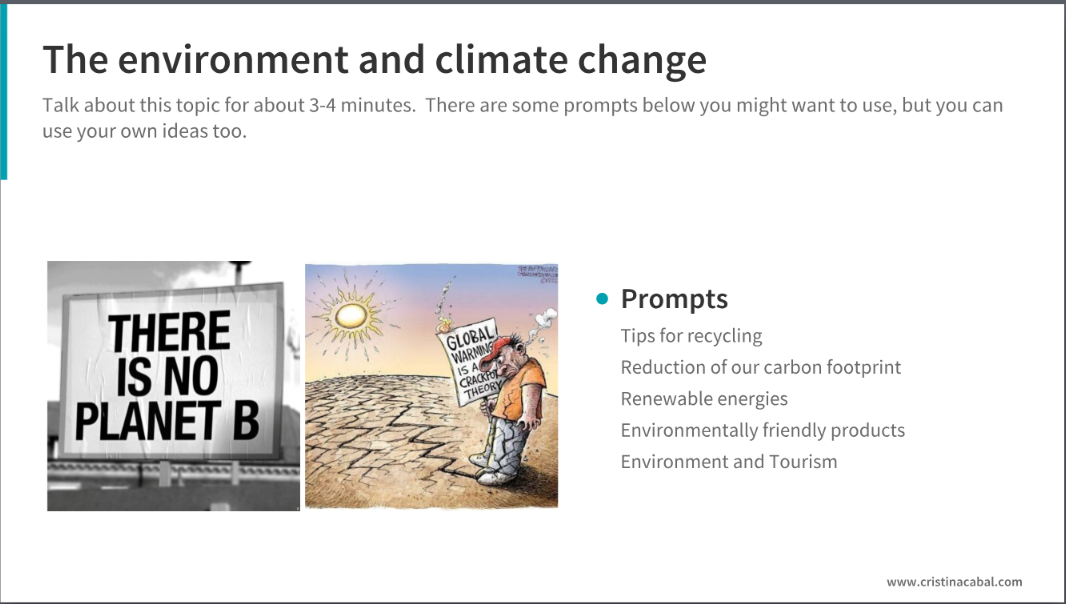Hey! How’s the new year treating you?
Question for you. Do you have any New Year’s Resolutions? Or let me rephrase it, have you announced to friends and family that you are finally going to hit the gym, eat fewer carbs and give up smoking? Have you? Sorry to be the party pooper here. Statistics say that only 8% of the people who make New Year’s resolutions stick to them. I am definitely part of the 92%. What about you?
However, I have made a New Year’s resolution. It’s the same I made last year. I am going to try to reuse single-use disposable plastic bags when I do my daily shopping. Last year, I even went as far as putting a bunch of these bags in the boot of my car. There they are. Exactly in the same place. This year I am going to try again. I am really going to try. It’s not that I don’t want to. I really want to do my part. It’s just that I forget. So, I am considering moving the bags to the front seat. It might work. What do you think?
That’s what I’m eco-guilty of. What about you? What is your darkest eco-sin?

The lesson today is aimed at students with a language level of B2 (upper-intermediate) and focuses on revising, learning and using vocabulary related to the environment and environmental issues through a variety of engaging activities which will help them learn vocabulary and improve listening, speaking and writing.
Introducing the Topic: Playing Hangman. Vocabulary and Speaking
Aim: Introduce some common vocabulary and to work on pronunciation.
On the board, write the word “Environment” and drill pronunciation.
Divide the class into two or three groups, depending on the number of students in your class.
- Team A starts saying one letter. Whether they guess right or wrong, the turn goes now to Team B who will say another letter.
- To try to guess the hidden word, a member of the team will need to stand up and say. “We know!”. If they guess right, they score 1 point. If they don’t, the other team can say up to two letters before anybody tries to guess again.
- Note: they can only attempt to guess the word once half the letters have been guessed. For this, before each game, you will have to count the number of gaps. For example, if the word contains 8 letters, they can only guess when 4 letters have been filled.
There are four words and expressions to be learnt or revised with this exercise. After they have guessed the words, ask them a question where the target word is used in context. You might need to introduce some new vocabulary at this stage.
- Environment: What do you do to help the environment?
- Global warming: How do you feel when you hear about global warming?
- Recycle: Do you recycle? What kind of things do you recycle?
- Renewable energies: Do you know what renewable energies are? Do you use any of them? Why? Why not?
Leaning Vocabulary
- Drill pronunciation as you teach the words and then flip the cards to see how they are used in context. Do this exercise twice.
- Reinforcement: there are 24 terms here. Ask students in pairs to write in two minutes as many as they can remember.
<
Listening. School Strike for Climate Change
In this inspiring thought-provoking talk, 15-year-old Swedish climate activist Greta Thunberg addresses the world leaders demanding they act against climate change.
Ask students to take down notes from Greta’s talk and then in pairs talk about the most important ideas in her speech.
Encourage the use of vocabulary.
Three Speaking Activities
- Gallery Walk. Thought-provoking Posters with a Humorous Twist. Giving a Monologue.
Posters here
- Put the posters containing environmental issues up on the walls of the class.
- Ask students to stand up, tour the gallery and choose a poster they would like to talk about for about 4 minutes.
- Ask students to stand next to the poster they would like to talk about.
- Arrange students in groups of three, being careful to mix students doing different posters.
- Ask students to sit down and give them 3 minutes to prepare their speeches. Encourage the use of specific vocabulary.
- Students, in their groups, gallery walk stopping next to the posters they have chosen and delivering their speeches.
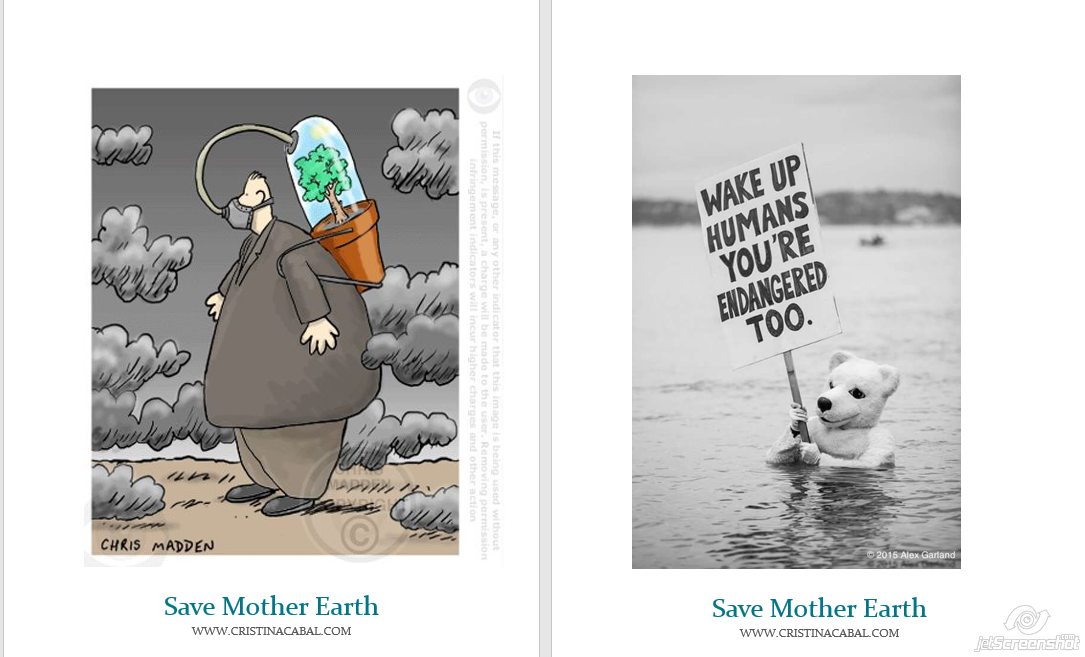
2. Speaking: Pictures with prompts. Monologues.
Pair students up. Give each of them a speaking task. Allow them 2 minutes to prepare their monologue and ask them to speak for about four minutes.
Student A
Student B
Oral and Written Mediation
Oral Mediation
Context: A friend of yours from New Zealand, who until two weeks ago lived for 20 years in a monastery in Bhutan, has decided to pay you a visit. He doesn’t speak the language and besides, knows nothing of the real world we live in.
Student A. He shows you this infographic but needs help to understand it. Choose two or three ideas and explain what they mean.
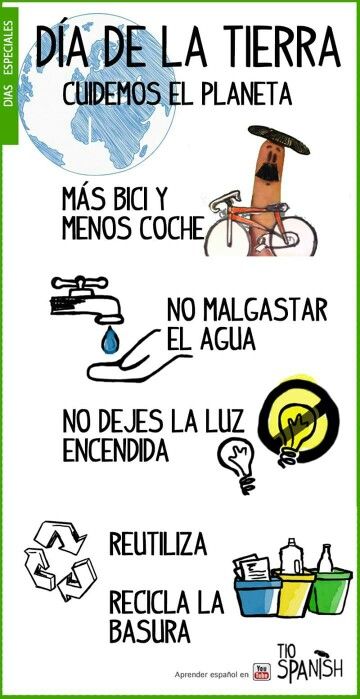
Student B. He sees this cartoon in a newspaper and doesn’t understand it. Explain it to him.
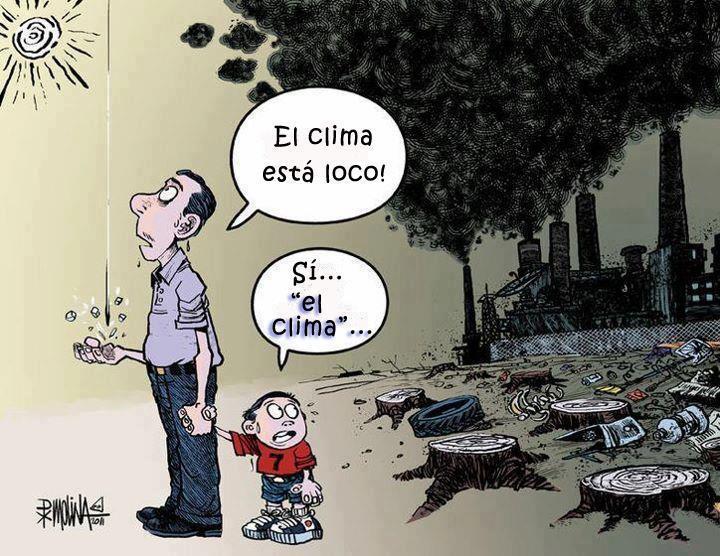
Written Mediation
Hope you have enjoyed the lesson!
